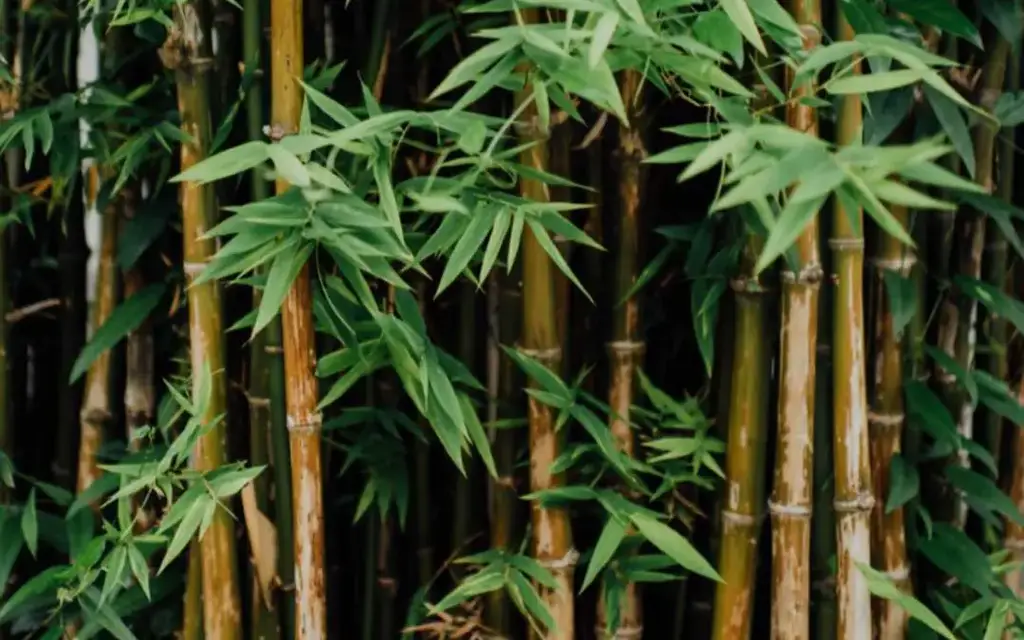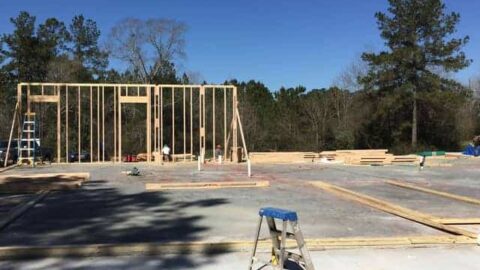What is the best climate for growing bamboo?
Bamboo is an incredibly versatile and resilient plant that can grow in a range of climates. However, the best climate for growing bamboo is one that offers warm, moist, and humid conditions. The ideal climate for bamboo should have a temperature range of between -20°C and 40°C, with an average temperature of around 20°C. Bamboo also requires plenty of water, so soil should be kept moist and humidity should be kept at least at 50%. Additionally, bamboo does best in areas that get plenty of sunlight, so it is important to find an area with plenty of sunlight. With the right climate and conditions, bamboo can thrive and be a great addition to any garden.
Overview of Bamboo
Bamboo is an incredibly versatile and sustainable resource, often used for construction, decoration, and even food. Its strength and durability, as well as its rapid growth rate, make it a great choice for eco-friendly building materials, furniture, and more. Bamboo is also naturally resistant to pests and moisture and requires minimal upkeep. Additionally, its hollow structure and flexible nature make it an ideal material for crafting beautiful and intricate designs. From flooring to fencing, bamboo is an excellent choice for any project. Its unique features make it an excellent choice for both indoor and outdoor use, ensuring that your project will last for years.
Factors Affecting Climate for Growing Bamboo
Climate plays an important role in determining where bamboo can successfully be grown. The factors that affect the climate for growing bamboo include temperature, precipitation, humidity, and sunlight. Temperature is an essential element for bamboo growth, as it can thrive in temperatures ranging from 10 to 30 degrees Celsius. Precipitation and humidity are also important, as bamboo needs sufficient water, but not too much, to grow. Lastly, sunlight is also a factor in its growth, as it needs ample amounts of sunlight to photosynthesize and grow. By understanding the climate factors that affect bamboo growth, you can determine where it can be grown and what requirements must be met.
Ideal Temperature for Growing Bamboo
Bamboo is a versatile and hardy plant that can thrive in many climates, but there is an ideal temperature range for the optimal growth of this amazing grass. Bamboo grows best when temperatures stay between 50 and 90 degrees Fahrenheit, with temperatures slightly cooler at night and slightly warmer during the day. Bamboo loves humidity, so maintaining a consistent level of moisture in the air is key to successful growth. By understanding the ideal temperature for growing bamboo, gardeners and landscapers can create a lush, beautiful bamboo landscape that can last for years to come.
Ideal Humidity for Growing Bamboo
Bamboo is a unique plant, able to grow in many climates and soil conditions. The ideal humidity for growing bamboo is between 60% and 70%, as this will encourage the growth of lush, healthy foliage. In areas where humidity is lower, misting plants regularly and providing plenty of water is essential. Too much humidity can be detrimental, as it can lead to fungal diseases and insect infestations. Bamboo has a high tolerance for drought, but for optimal growth, it should be watered at least once a week. In areas with high humidity, it is important to provide adequate drainage and air circulation to prevent root rot. With the right humidity and care, your bamboo will be a beautiful addition to your garden.
:max_bytes(150000):strip_icc()/best-growing-conditions-for-bamboo-2132865-hero1-7092b4acbe7046d5a8937a4416de5d05.jpg)
Ideal Sunlight for Growing Bamboo
Bamboo is an easy-to-care-for plant that thrives in many different climates. However, in order to ensure optimal growth, it is important to know what the ideal sunlight conditions are for growing bamboo. Bamboo plants grow best in areas that receive indirect sunlight for most of the day, or in areas that receive full sun for only a few hours each day. For those living in warmer climates, it is recommended that bamboo be shaded from the midday sun, as too much direct sunlight can cause the leaves to scorch. In addition, bamboo should be watered regularly, as they thrive in moist soils. With the right care and the right amount of light, bamboo can be a beautiful addition to any garden.
Soil Requirements for Growing Bamboo
Bamboo is a versatile and attractive species of grass that can be grown in many areas around the world. While some varieties of bamboo can tolerate a wide range of soil types and conditions, most prefer well-draining, loamy soil that is rich in organic matter. To ensure the best results when growing bamboo, make sure your soil has the following characteristics: adequate drainage, pH levels of 6-7, and plenty of compost or fertilizer to keep it healthy. Additionally, avoid soils that contain excessive amounts of clay or sand, as these can inhibit the growth of bamboo. Proper soil preparation is essential for growing healthy bamboo, so take the time to ensure that your soil is up to the task!
Tips for Maintaining a Healthy Bamboo Plant
Bamboo plants are an attractive, low-maintenance addition to any home or office. Although bamboo is a hardy plant, there are certain steps you can take to ensure your bamboo stays lush and healthy. Here are some tips for maintaining a healthy bamboo plant:
- Make sure your bamboo is getting enough water. Bamboo needs plenty of moisture to thrive, so water your plant regularly.
- Provide your bamboo with adequate light. Bamboo plants prefer bright, indirect sunlight, and may require supplemental lighting during the winter.
- Fertilize your bamboo regularly to provide essential nutrients.
- Prune your bamboo routinely to keep it at the desired size and shape.
- Check your bamboo for signs of pests, and treat it with an appropriate insecticide if needed.
By following these simple tips, you can keep your bamboo looking vibrant and healthy. With just a bit of effort, you can enjoy the beauty of a bamboo plant in your home or office for years to come!
FAQs About the What is the best climate for growing bamboo?
Q1: What type of climate is best for growing bamboo?
A1: Bamboo grows best in warm, humid climates with plenty of moisture and indirect sunlight.
Q2: How often should bamboo be watered?
A2: Bamboo should be watered regularly to maintain soil moisture. It is best to water the bamboo deeply to promote healthy root growth.
Q3: What type of soil is best for growing bamboo?
A3: Bamboo prefers moist, well-draining soil with a pH of 6.5-7.5. Adding organic matter such as compost or manure can help to improve soil structure and drainage.
Conclusion
Overall, the best climate for growing bamboo is one that is warm and humid with plenty of rainfall. Bamboo grows best in tropical climates with temperatures between 65°F and 95°F (18°C – 35°C). It also needs plenty of moisture and can tolerate temperatures up to 107°F (41°C). To ensure the best growth, the soil should be well-drained and rich in organic matter. Bamboo is a versatile and resilient plant that can thrive in most climates, making it a great choice for gardeners in a variety of regions.







